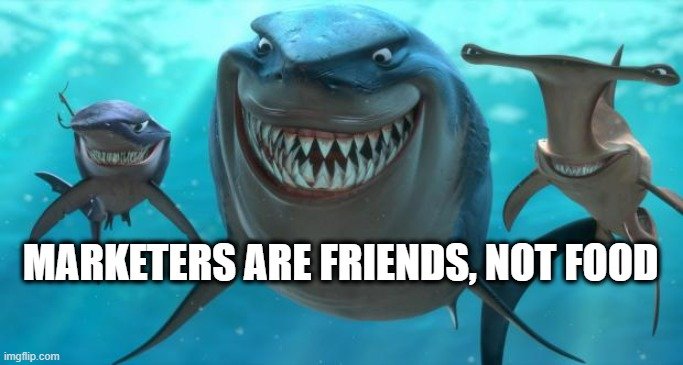Marketers Are Friends, Not Food

How Kate Erwin, Head of Content at Contractbook, breaks bread with her sales counterparts to support company growth.
Our Guest
Name: Kate Erwin
What She Does: Kate is a “content-obsessed, community-oriented connector.” She harnesses all of that energy into her job as the Head of Content at Contractbook.
Company: Contractbook
How to Connect: Kate’s LinkedIn

Marketing gets a bad rap in the world of SaaS sales. They’re looked at as the “fluff” behind the real work – sales.
And clips like this help support that idea (as satirical as they are).
And as fun as it is to belittle marketing, their jobs can make the lives of their sales counterparts much, much easier.
From creating personalized content to running large-scale events, marketing has the opportunity to support and enable reps in a way that others can’t.
Our guest, Kate Erwin, has made that her mission as a marketer. She constantly asks a simple, but powerful, question to help strengthen the relationship she has with her sales team:
“How can I support you?”
Kate sat down with us to share more about her mindset as a marketer, how she fosters alignment at her company, and what you (yes, you!) can do to start bridging the gap between these departments at your own company.



